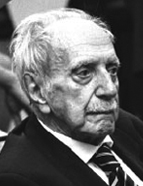

Other topics deserved his attention in smaller works. One problem: the betrayal of the New Christians in 1624 is a study in which the main character, the New Christian, appears as the modern social agent, capitalist par excellence, flexible, transnational and supra-religious, based on “business strategy” rather than on the Iberian, Catholic or Calvinist ties that were dominant in colonial Bahia at the time of the Dutch invasion. An analysis of the sources for the study of urban history is a pretext for highlighting the importance of the city for different civilisations, considering the variation in city models, the “man vs. nature” duel to explain it, Spanish and Portuguese urbanism in the peninsula and in America and, in the Brazilian case, the “fiction” of rural vs. urban antagonism. At a time (the 1970s) when the importation of the concept of plantation to explain large rural properties was successful in Brazil, França opposed it with that of fazenda, based not only on a view of history and sources, but also on his personal experience as a former member of one of these communities.
The intellectual influences on Eduardo d’Oliveira França’s historical production were twofold. Methodologically, he was the Brazilian disciple of the first two generations of the Annales , that of Bloch-Febvre and that of Braudel, more of the former than the latter. To this can be added some Weberian influence, more indirect than direct, and that of Simmel. His doubts about what he considered sociological generalisations, expressed in his study on the cultural function of history, explain a certain distance from sociology and sociologists, which is evident in his contact with the works of Gilberto Freire and Oliveira Viana, from whom he draws on the theory of miscegenation in Brazilian culture and the role of the ‘capitão-mor regente’ in colonial municipalities, respectively. Historiographically, his pillars rested on the Portuguese historiographical tradition, due to the very theme of his main works, and on French historiography, not only that of the Annales, but also that of the representatives of the previous generation, whose synthesis was expressed in the three great university collections, L’Évolution de l’Humanité, Peuples et Civilisations and Clio .
This work is financed by national funds through FCT - Foundation for Science and Technology, I.P, in the scope of the projects UIDB/04311/2020 and UIDP/04311/2020.
